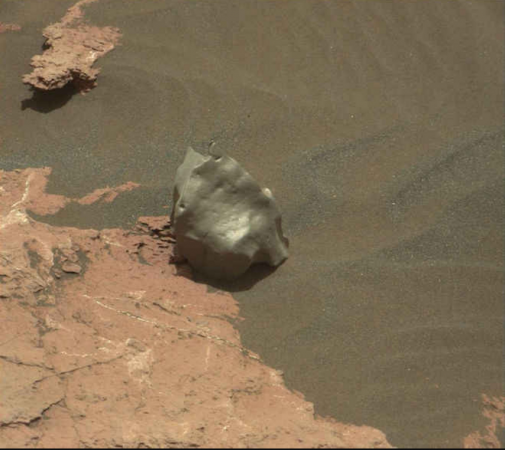
USA: The "unusual gray float rock" discovered by NASA's Curiosity rover on Mars is believed to have come from somewhere else. According to scientists, it could be either a piece of meteorite or a piece of Mount Sharp debris in Gale Crater. The dark, shiny appearance of the rock is surprisingly similar to earlier Mars meteorites.
NASA-operated Mars rovers often discover enigmatic objects that are almost always from the Red Planet. Last June, the Perseverance rover discovered an unusual object that turned out to be a piece of the rover itself. The 10-foot-tall rover Curiosity has seen meteorites before, so this isn't the first time.
"This is an unusual gray float rock that may be the remains of material atop Mount Sharp or possibly a meteorite," planetary geologist Catherine O'Connell-Cooper wrote in a blog post.
Also Read: Microsoft opens new Windows 11 preview build for Insiders
"Over the past ten years, we've studied a few meteorites, but they haven't been so many that we're not excited by the idea of a new one!"
The Curiosity rover is currently exploring the Gale Crater area as it travels along the surrounding slopes of the mountainous Mount Sharp. At this location, the marker band area of geological formation is of interest. According to the space agency, an unknown gray rock was discovered by the rover just below this band.
Known as "Egg Rock", the spherical, golf-ball-sized object was discovered by the Curiosity rover in 2016 and determined to be a rare iron-nickel meteorite.
Also Read: WhatsApp will support migration of Android-to-Android chats without Google Drive
It was most likely a fragment of an asteroid. The researchers are interested in examining the effects of exposure to Martian conditions on these meteorites in comparison to the possible effects of Earth conditions.
Also Read: YouTube is promoting initiatives to launch a hub of ad-supported TV channels
The Curiosity rover landed on Mars in August 2012. The largest and most sophisticated scientific instruments ever sent to Mars are aboard. Its main objective was to determine whether microbial life could ever exist on Mars.